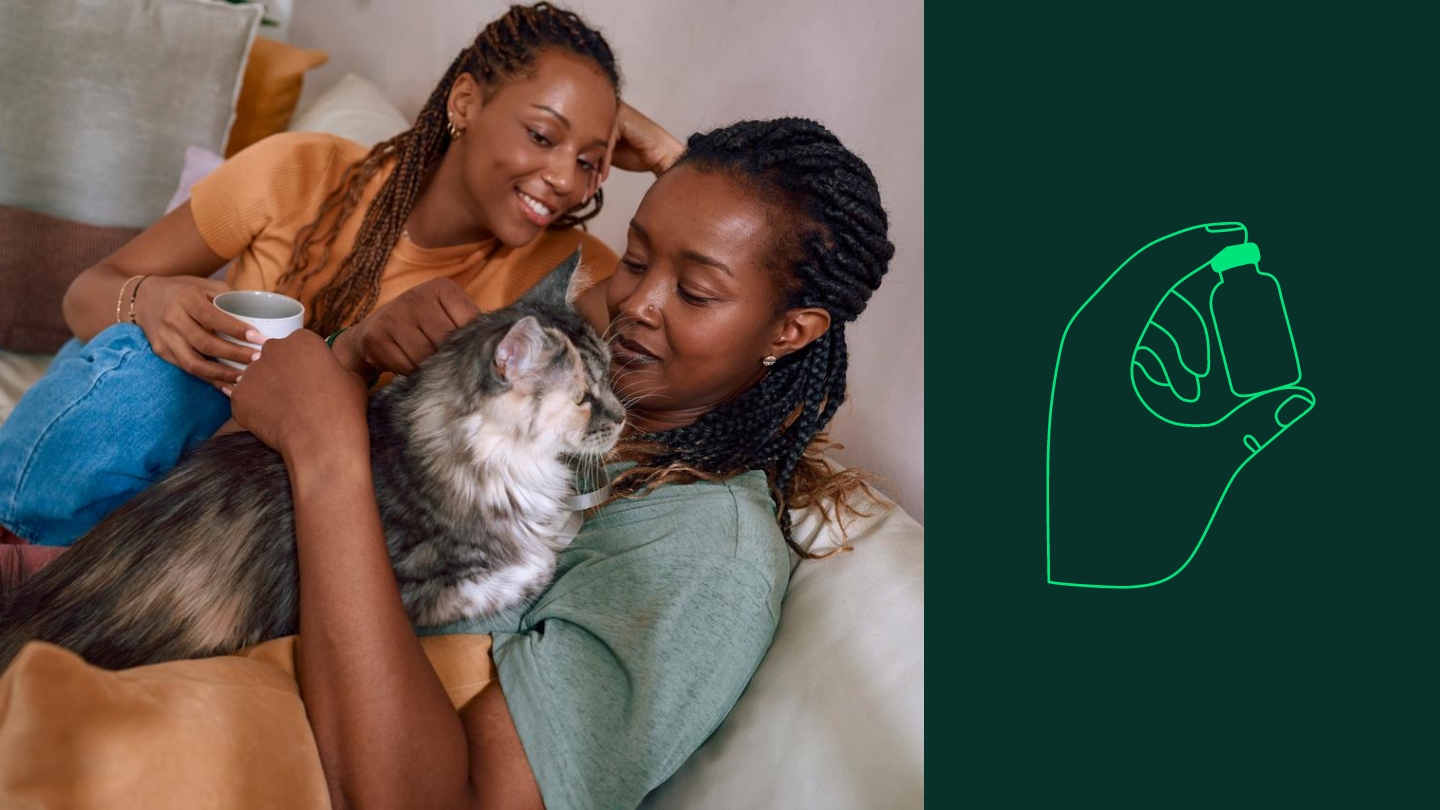Cat vaccination: 10 things you should know
Only one in three cats in the U.S. that get taken to the vet annually is vaccinated1, although vaccination is one of the most important ways to protect pets – and of course cats – from infectious diseases. If you’ve been hesitant about making vaccination a priority so far, you can confidently do so now. We’ve answered 10 important questions about cat vaccination, to help you make informed decisions about preserving your cat’s health.


Why is vaccination important for your cat?
Vaccines strengthen your cat’s immune system against serious and even fatal infectious diseases. That’s why vaccination is one of the most important preventive healthcare measures for cats – and any other pets, really!
Based on your cat’s lifestyle, your veterinarian will assess your cat’s risk factors and recommend which vaccines suit your cat best.

Why does your cat’s lifestyle matter for vaccination?
Each cat is unique and has a distinctive lifestyle that brings its own disease risks. Your cat’s vaccination should be tailored to countering these individual risks.

What are different cat lifestyles?
Strictly indoor cats are cats who never go outside and have no contact with outdoor cats.
Indoor-outdoor cats are cats who live indoors but are also likely to go out. Even cats that rarely go out and/or travel from time to time are considered indoor-outdoor cats.
Outdoor cats are cats who spend most of their time outside. They’re likely to be regularly exposed to other cats of unknown origin and health status.
Did you know that all cats, whether indoor or outdoor, should be vaccinated? This is a recommendation by the Word Small Animal Veterinary Association (WSAVA)2.

When should you start vaccinating your kitten?
Did you know that by drinking mother's milk in the first hours (the colostrum), your kitten got some valuable protection against diseases for the first weeks after birth? However, this protection will decrease over time.
That’s why the vaccination of kittens may start as early as eight weeks old and boosters may be necessary later in your cat’s life. Contact your veterinarian to plan your cat’s immunization schedule.

What are boosters and why does your cat need them?
The vaccine’s effect on your cat’s immune system will diminish with time. Adult cats should be revaccinated periodically to boost their defense against threatening diseases.
Thanks to the booster vaccination, cats will maintain, and even improve, the level of protection they need in the long-term. Which boosters your cat should get – and in which frequency – depends on your cat’s lifestyle, the disease in question, and your veterinarian’s advice.

Your cat misses a booster. What now?
Each vaccine offers optimal protection only for a defined period of time.
When this time is passed, the immune response will weaken, leaving your cat with an increased risk of infection. Talk to your veterinarian to find out how you can catch up on your missed booster.
Remember: There’s never a bad time to discuss vaccination and preventive healthcare with your veterinarian. These topics are always important.

How does vaccination work?
Vaccines contain antigens that trigger an immune response in your cat’s body without causing the disease. It’s like a test run for a real infection: they help your cat’s immune system build up defenses towards pathogens. When your cat gets exposed to the actual harmful virus or bacteria, they are prepared to fight them off.

How will your cat feel after receiving a vaccine?
In the vast majority of cases, your cat will feel fine and you won’t notice any change in their behavior.
Mild signs, such as tiredness, mild fever, and decreased appetite, may be present for a short time. Occasionally, some vaccines may produce a transitory small and soft nodule at the site of injection.
If these signs persist for more than 48 hours, contact your veterinarian. The extent of reaction may depend on several factors such as age, type of vaccine and your cat’s overall individual health.

What about vaccine efficacy?
Vaccine efficacy has been demonstrated through rigorous testing to determine both the strength and the duration of the conferred protection.
In addition, all vaccines have to undergo rigorous quality and safety testing in order to be approved by regulatory authorities. By the way: regularly deworming your cat will improve your cat's overall health. This will also lead to an improved immune response to vaccination!

What do you need to know about safety?
Vaccination is a very safe procedure. Adverse reactions may happen but their frequency is very low, especially in view of the millions of doses that are administered every year. However, as per any medical procedure, vaccination may cause some side effects – see question 8. Overall, vaccination reduces the risk of developing serious and even fatal diseases: The benefits outweigh the risks.
References
1Data on file
2Guidelines for the vaccination of dogs and cats compiled by the Vaccination Guidelines Group (VGG) of the World Small Animal Veterinary Association. Journal of Small Animal Practice Vol 57 January 2016
Related Content

Get your cat to the vet!


